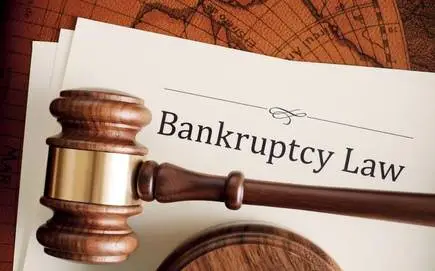Insolvency & Bankruptcy Lawyers in Kochi – IBC Litigation
Insolvency & Restructuring (IBC) — Kochi & Ernakulam
IBC matters involve threshold assessment, document readiness and time-bound filings before the NCLT Kochi Bench under the Code and related regulations.
The Insolvency and Bankruptcy Code, 2016 (IBC) has reshaped the framework for debt recovery and restructuring in India. Proceedings under the IBC are handled by the National Company Law Tribunal (NCLT), Kochi Bench, which deals with both creditor petitions and debtor restructuring plans.
IBC litigation is time-bound, highly procedural, and impacts not only creditors and debtors but also directors, guarantors, and investors. With strict statutory timelines, cases require careful preparation and immediate response.
Creditors’ Actions Under IBC
Financial and operational creditors frequently approach the NCLT to initiate insolvency proceedings against defaulting companies.
Common Creditor Remedies
- Admission of insolvency petitions (Sections 7 and 9, IBC)
- Appointment of Interim Resolution Professionals (IRPs)
- Formation of Committee of Creditors (CoC)
- Initiation of corporate insolvency resolution process (CIRP)
- Filing of avoidance applications to reverse preferential or fraudulent transactions
Creditors must comply with strict filing requirements, including submission of invoices, loan agreements, and proof of default.
Debtor Restructuring & Resolution
Companies facing insolvency proceedings may propose restructuring plans to preserve enterprise value.
Debtor-Focused Strategies
- Negotiating with creditors for settlement before admission
- Filing resolution plans through eligible resolution applicants
- Compliance with CIRP timelines and disclosure requirements
- Protecting directors and management from liability exposure
- Exploring schemes of arrangement or compromise under the Companies Act
Early preparation of restructuring strategies often determines whether a company survives or is forced into liquidation.
Director & Promoter Liability
Directors and promoters may face personal consequences during insolvency proceedings.
Examples include:
- Liability under avoidance applications
- Disqualification for non-compliance
- Investigations for fraudulent or wrongful trading
- Guarantees being invoked during CIRP or liquidation
Understanding these risks is crucial for corporate leadership in insolvency situations.
Litigation Process Before NCLT
CIRP & Timelines (Kerala)
Insolvency & Restructuring (IBC) typically begins with identifying the correct applicant class, limitation and defaults. An IBC lawyer kochi approach emphasises notice, records of default and financial/operational creditor documentation before NCLT Ernakulam. Once admitted, timelines govern CoC formation, IRP/ RP processes and resolution steps. Parallel recovery or enforcement requires coordination so outcomes remain consistent and enforceable.
- Petition Filing: Creditors or debtors file insolvency petitions under Sections 7, 9, or 10 of the IBC.
- Admission Stage: NCLT examines compliance and proof of default.
- Interim Resolution: Appointment of IRP and moratorium on proceedings.
- CIRP Stage: Resolution plan submission and voting by Committee of Creditors.
- Final Outcome: Either approval of resolution plan or liquidation of the corporate debtor.
FAQs – Insolvency & Restructuring
Q1. Who can file an insolvency petition in Kerala?
Financial creditors, operational creditors, and the corporate debtor itself may file petitions before the NCLT Kochi Bench.
Q2. What is the timeline for insolvency resolution under the IBC?
The CIRP is designed to conclude within 180 days, extendable by a maximum of 90 days. In practice, delays may occur, but statutory limits encourage faster resolution.
Q3. Can directors be held personally liable during insolvency?
Yes. Directors may face liability in cases of fraudulent or wrongful trading, and personal guarantees can be enforced separately.
Q4. What happens if no resolution plan is approved?
The company proceeds to liquidation, with assets sold to repay creditors in order of statutory priority.
- Commercial & Civil Disputes
- Corporate & Shareholder Disputes (NCLT)
- Property Disputes & Partition
- Execution & Enforcement
Closing Note
Insolvency and restructuring proceedings before the NCLT Kochi Bench require immediate, precise, and compliant action. Whether initiated by creditors seeking recovery or by companies attempting to restructure, IBC litigation is driven by timelines and enforceability. Success lies in preparation, documentation, and strategic use of the remedies provided under the Code.


